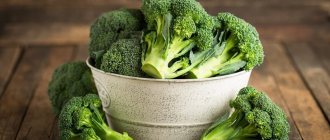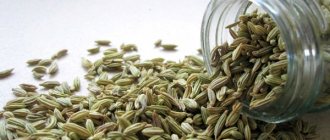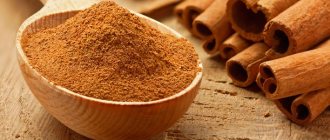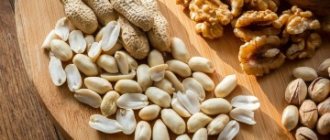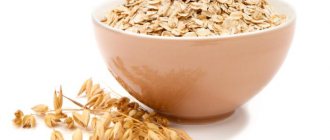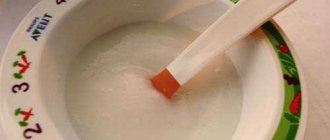Useful properties of raisins for breastfeeding
It is thanks to its valuable composition that raisins improve lactation during breastfeeding. Raisins are useful for mom because they have the following composition that determines their qualities:
- Vitamin A is involved in metabolic processes, improves vision, has the function of regeneration and slows down aging.
- Vitamin C (ascorbic acid) improves the condition of blood vessels, normalizes hematopoiesis, removes toxins, strengthens the protective functions of the body, which works in an enhanced mode during feeding.
- Vitamin B1 (thiamine) takes part in the metabolism of fats, proteins and carbohydrates, rids the body of toxins, improves memory and brain activity, stimulates growth and strengthening of bone tissue.
- Vitamin B2 (riboflavin) is important in the formation of red blood cells, has a positive effect on the skin, nails and hair, which is not unimportant, since after childbirth hair is prone to loss. Improves immunity.
- Niacin (vitamin B3 or vitamin PP) is involved in energy metabolism, normalizes hormonal levels, which is important when feeding, improves digestion, and reduces cholesterol levels.
- Vitamin B5 (pantothenic acid) is involved in the production of adrenal hormones, which are necessary to prevent arthritis, heart disease, and slows down aging.
- Vitamin B6 (pyridoxine) strengthens nerve cells, which is important in the postpartum period, when the likelihood of postpartum depression increases, and promotes cell regeneration.
- Folic acid (vitamin B9) strengthens protective functions, improves the functioning of the nervous system, and participates in regeneration processes.
- Vitamin E (tocopherol) is recognized as the vitamin of youth. Tocopherol slows down the aging process, improves skin condition, improves cell nutrition, prevents blood clots and anemia during increased stress during breastfeeding.
- Vitamin K (phylloquinone) is responsible for blood clotting and prevents internal bleeding. It is important for a woman who is breastfed and for a newborn, he receives it with mother's milk.
- Vitamin H (biotin) activates vitamin C and participates in metabolic processes.
- Potassium – raisins are the leader in the content of this macronutrient. When combined with sodium, they promote the full functioning of the heart, participate in the production of enzymes that strengthen muscles and relieve fatigue, which is especially important for women when breastfeeding.
- Calcium is recognized as an antidepressant, strengthens nerve cells, bone tissue, and tooth enamel.
- Magnesium also plays a major role in improving the condition of teeth and bone tissue.
- Sodium strengthens nerve cells, improves digestion and the functioning of the excretory system.
- Phosphorus improves brain function and memory. Strengthens tooth enamel and bone tissue.
- Chlorine improves liver functionality, maintains alkaline balance in the body, and removes toxins.
- Iron improves hematopoietic processes, prevents anemia, improves the condition of hair and nails, which is important when breastfeeding.
- Manganese normalizes the functioning of the thyroid gland and the production of hormones. Plays an important role in the production of hemoglobin and red blood cells.
- Copper improves the condition of blood vessels, bone tissue, and provides oxygen to cells.
- Selenium strengthens the nervous system and immunity, improves hair condition.
The presence of dried fruits in the diet of a nursing mother is very important.
Grapes: composition features and beneficial properties
Since ancient times, the grapevine has been considered a symbol of fertility, abundance and a happy life. This sweet berry, beloved by many, is not only tasty, but also extremely healthy and nutritious. Grapes have a beneficial effect on almost all functional systems of the human body, quickly restore strength and have a pronounced antioxidant property.
Composition and properties
Grapes contain:
- invert sugar (up to 20%), sucrose (5.5%);
- organic acids - malic (57%), d-tartaric (38%), citric, traces of oxalic and salicylic;
- amino acids - cystine, lysine, etc.;
- flavonoids;
- vitamins C, P, A and group B;
- complex pigments;
- glycosides;
- tannins (3.4%);
- mineral salts - potassium, rubidium, calcium, sodium, phosphorus, magnesium, manganese, bromine, boron, iodine, fluorine;
- vitamins of various groups: A, B1, B2, B6, B9, C, P.
Thanks to its composition rich in biologically active substances, grapes have the following beneficial properties:
- strengthens the immune system;
- has a diuretic effect;
- normalizes the functioning of the gastrointestinal tract (reduces the acidity of gastric juice, fights constipation, has a choleretic effect);
- promotes good hematopoiesis (increases hemoglobin, promotes the formation of red blood cells);
- normalizes metabolism;
- strengthens the central nervous system.
Vitamin C-rich grapes will help strengthen your immune system
When is grape treatment useful?
Ampelotherapy (grape therapy) is used for:
- initial form of tuberculosis;
- diseases of the heart, liver, kidneys and bronchi;
- hypertension;
- gout;
- urethritis.
Grape juice is similar in composition to alkaline waters; it helps remove uric acid from the body and dissolve stones.
However, for all its advantages, grapes have a number of features that can adversely affect human health. It is contraindicated in the presence of diseases such as:
- diabetes;
- heart failure;
- swelling;
- hypertension;
- peptic ulcer.
How are raisins different from grapes?
Raisins are dried grapes that lack water and vitamin C. Therefore, many manufacturers add ascorbic acid to the finished product to compensate for this deficiency. Otherwise, raisins retain all the properties of the fresh fruit, and in concentrated form. For example, the amount of sugar in raisins is 8 times higher than in grapes, which indicates the high calorie content of the former.
Dried grapes are a source of:
- fructose;
- glucose;
- microelements;
- vitamins;
- vegetable fiber;
- antioxidants.
Raisins retain 70% of vitamins and 100% of macro- and microelements contained in fresh grapes
Useful properties of raisins:
- relieves fatigue and fills the body with energy;
- helps with depression and eliminates depression;
- strengthens blood vessels and heart;
- improves the functioning of nerve cells and ensures cellular respiration;
- stimulates brain activity;
- regulates the functioning of internal organs;
- normalizes metabolism;
- strengthens the immune system;
- normalizes sleep;
- helps with anemia.
Video: what are the benefits of raisins
Harm of raisins during lactation and contraindications
Despite the amazing benefits of this product, there are still restrictions and contraindications for use during breastfeeding:
- acute heart failure;
- diabetes;
- overweight;
- acute tuberculosis;
- ulcer.
Experts recommend excluding raisins from the diet in the first months of breastfeeding. Excessive consumption can cause harm because it contains a lot of sugar, which will cause diathesis in the baby.
Excess weight is one of the contraindications to eating raisins.
Colic
In the first few months of life, the baby develops an incompletely developed excretory system and digestion. Eating raisins leads to excessive gas formation, colic and abdominal pain, leading to digestive problems and indigestion. When the baby grows up, raisin water helps improve digestion and prevent constipation.
Calorie content
Restriction for use is excess weight. In addition, a woman who wants to get rid of extra pounds after childbirth must consume it within strictly established limits. The sugar content is 7 times higher than in fresh berries.
Raisin
The grapes are dried in a special way, and this is how raisins are obtained. Depending on what type of berry was used, this type of dried fruit is obtained. Experts are confident that raisins have valuable qualities for a nursing mother. However, you need to be aware of the possible risks when using it.
Valuable qualities
Raisins are rich in carbohydrates. In total, per 100 grams of product there are approximately 70 grams of these compounds, 15.4 grams of water, up to 3 grams of protein, 1.8 grams of ash and 0.6 grams of fat are also present. It is a fairly high-calorie product - up to 300 kilocalories.
What are the positive aspects of raisins:
- High vitamin and mineral complex. A special place is occupied by B vitamins, nicotinic acid, magnesium, boron, iron and potassium.
- Increases the efficiency of the nervous system, improves sleep.
- Strengthens the heart and blood vessels.
- Increases hemoglobin levels.
- Improves metabolic processes.
- Helps strengthen the body's immune system when combined with honey, other dried fruits and nuts.
Contraindicated
- Overweight women.
- For enterocolitis.
- If open tuberculosis is diagnosed.
- In case of direct intolerance.
- For ulcerative formations.
- For heart failure.
How to eat raisins during lactation?
Despite all their usefulness, raisins should be consumed very carefully during lactation. Excessive consumption will lead to colic, increased gas formation, and even allergies.
From what month are raisins introduced?
You can try introducing raisins during breastfeeding from 2-3 months. The baby’s digestive and excretory systems are normalized, and there is less likelihood of a negative reaction.
Raisins should be introduced into the diet during breastfeeding only after the baby is 3 months old.
Daily norm
It is necessary to introduce into the diet during breastfeeding in accordance with the basic rules:
- Try a small dose: one zest.
- Mostly in the first half of the day.
- Do not consume other new foods.
- If no negative reaction occurs within 2-3 days, you can gradually increase the rate.
- If a baby reacts negatively to raisins, repeat the test no earlier than three weeks.
- The recommended norm is no more than 60-70 g.
From what month are raisins introduced?
A woman can include sweet dried fruit in her diet 3 months after the birth of her baby. The child will grow up, the digestive system will develop, and will be able to process new substances.
It is not advisable to start introducing the product in the first month. The newborn suffers from colic, and raisins contribute to bloating and the accumulation of intestinal gases. This will only increase the baby’s torment.
You don’t have to start including raisins in their pure form on the menu. It’s good to start with decoctions and compotes. They do not have such a harsh effect on the child’s digestive system. You can bake an apple with raisins. All this will diversify the mother’s menu and prepare the baby for introducing berries into the mother’s diet.
Recipes with raisins
In addition to regular use, it is recommended to include it in various dishes. It becomes an excellent and healthy substitute for sweets during breastfeeding.
Raisin drink recipe for mom
The recipe for raisin drink is simple but very healthy. Necessary:
- Rinse the berries, preferably soak for half an hour.
- Add water and boil for about 10 minutes.
- Wrap it up and let it brew.
- If desired, you can add other dried fruits.
Important to remember! Pear has a strengthening effect. Prunes improve bowel function. Date helps increase lactation.
Baked apples with raisins
Another amazingly tasty and healthy dish.
Important! Use green varieties of apples; the baby is less likely to develop allergies when breastfeeding.
- Remove the center of a washed and dried apple.
- Mix washed raisins with nuts and finely chopped apple core.
- Fill the apple.
- Bake at 180° for 20 minutes.
If the child does not have an allergic reaction to bee products, it is recommended to pour honey over a warm apple and sprinkle with sesame seeds.
Other recipes
Raisins go well with cottage cheese, oatmeal and rice.
- You can beat cottage cheese and kefir in a blender until smooth and add raisins.
Important! It is not recommended to buy ready-made cheese mixtures in the store. They are produced with the addition of preservatives and chemical fillers.
- Steam oatmeal with boiling liquid, add nuts, sesame seeds, flax seeds, chia seeds, sunflower seeds (optional) and raisins. The result is a nutritious, healthy porridge.
Important! Use milk with caution; lactose causes allergic reactions in infants.
- Rice porridge with raisins. Boil the rice, add butter, a little salt and raisins.
Useful and dangerous properties
Raisins retain all the beneficial substances of grapes, so they will be very useful for both mother and baby.
Among them:
- iron, which is very necessary for a mother after childbirth;
- magnesium also helps fight anemia;
- nicotinic acid calms the nervous system, stimulates metabolism;
- potassium has a good effect on the functioning of the heart and kidneys, improves blood composition and skin condition;
- boron is essential for bone health, as it participates in the formation of necessary hormones and creates conditions for the production of vitamin D, which is necessary for the absorption of calcium.
Eating raisins is recommended for sore throats and colds, hepatitis, hypertension and constipation. This sweet product is especially useful in combination with honey and nuts, although the mixture turns out to be explosive in terms of allergies, so you should be careful with it.
In addition, grapes for drying are often treated with “chemicals”, for example, sulfur dioxide, so that they do not spoil and insects do not grow in them. This component is allowed in the food industry, but, like other preservatives, it is harmful to health. Dried fruits prepared without “chemicals” are also on sale. They are not shiny or as attractive to look at as their chemical counterparts. But they are natural and healthy. They are worth choosing - both during lactation and after it.
How to choose the right raisins?
In order for raisins to bring maximum benefit when feeding and not cause harm, you need to learn how to choose a quality product or dry it yourself.
- The rich, bright color indicates that the berries were soaked in special chemical solutions. Soft, with a uniform color - the result of the use of preservatives and chemicals in the drying process. Preference should be given to dry, wrinkled berries.
- Darker varieties are beneficial. It is recommended to introduce light berries first, then gradually add dark berries.
- High-quality berries are dry, non-shiny, and have a matte tint.
- It is important to store in a dark, dry, cool place for about a year.
Drying grapes at home
The grape berries are predominantly light in color. You can dry it in the following ways:
- Under the sun. It happens faster, but some of the beneficial qualities are lost.
- The most useful drying is in the shade, in a well-ventilated place.
- Using an electric dryer.
Raisins are an excellent antidepressant. It will perfectly replace sweets and lift your spirits, providing your mother with the necessary valuable substances that she so badly needs during the breastfeeding period.
Which raisins are the healthiest?
Almost all raisins sold in stores are treated with chemicals - this helps give the product a more attractive appearance, extend shelf life, and protect the berries from rodents, insects and rot. But any chemicals are dangerous for a child; they can cause allergies, eating disorders, and more serious and severe diseases.
If you have the opportunity, purchase a dryer and prepare healthy dried fruits yourself. But you can also get high-quality raisins in natural conditions - by drying the berries in the sun, although residents of Central Asia are sure that grapes should be dried in the shade. With any method of drying, the grapes need to be laid out on parchment in one layer, checked and turned over every 3 days.
You can try to find a high-quality and safe product in the store. The most natural type of dried grapes are soyagi, bdana, shigani - the berries are dried in the shade in a natural way. These raisins have a rich dark blue color and a matte finish; you can buy them in stores for vegetarians and raw foodists.
If you are unable to find a similar variety of raisins, you just need to remember a simple rule - the more beautiful and shiny the berries look, the more chemicals they contain.
If raisins were stored incorrectly, in a damp room, then putrefactive processes begin in the berries. A high-quality product should be dry, the raisins should not clump together. If you throw a handful of dried grapes onto a hard surface, you should hear a ringing sound.
Difference in varieties based on benefits
Raisins usually vary in color and size of berries. It is made from different grape varieties. Their benefits are also not the same. The most useful varieties are Bdana or Shigani. They have a dark blue color and pronounced sweetness. High calorie varieties.
The usual light, medium-sized varieties Sabza or Kishmish may not taste very sweet. They have low calorie content. Dark varieties of grapes are beneficial, and therefore dark varieties of raisins. They have more valuable substances.
Raisins during lactation
Young mothers have to give up their favorite sweet foods and dishes throughout pregnancy and lactation so as not to gain extra pounds. Dried fruits are suitable as a replacement; they are not inferior in sweetness to chocolate, but are much more healthy. Of course, no product can be eaten in unlimited quantities, but in moderate portions, dried grapes will not cause harm.
Add dried grapes to your diet, like any new product, gradually and in small portions. First, cook compote with the addition of dried fruit. Then add a little to your morning porridge. Make sure that nothing bothers your baby after this and you can safely increase the portions. Be sure to rinse raisins before eating to rid them of any harmful chemicals that may be on them. Those berries that will be added to food should be poured with boiling water, the rest should be dried and stored. Then you can protect yourself.
Modern pediatricians allow young mothers almost all products, except those that are most likely to cause allergies in the baby. It is believed that if during pregnancy the expectant mother consumed these products and did not experience any unpleasant sensations or consequences, then most likely the child will not have these symptoms. In any case, the choice of products must be approached responsibly so as not to harm the baby. What is important for him is the quality and quantity of mother's milk, which fully satisfies the needs of his growing body.

